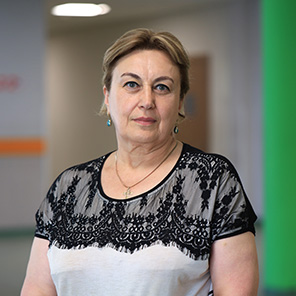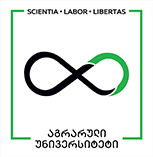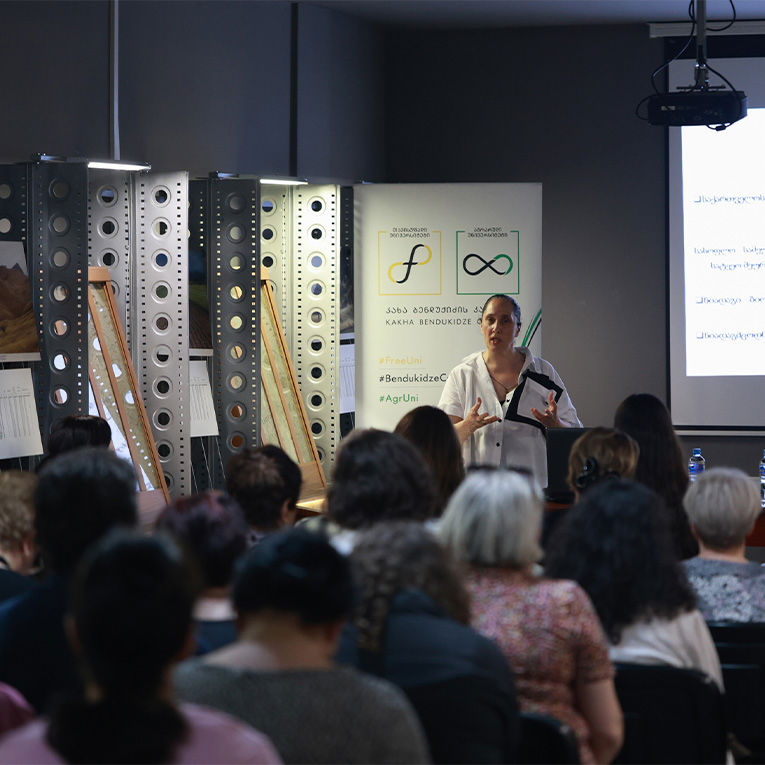School of Agronomy and Landscape Management
Bachelor's Program in Agronomy Description
The objective of the Agricultural University of Georgia Bachelor's Program in Agronomy is to prepare graduates with both theoretical knowledge and professional skills that meet modern requirements in the field of agronomy. Students will gain expertise in major agricultural crops found in Georgia and globally, as well as in agro-technical rules and norms for their cultivation, including biological and ecological aspects.
Within the framework of the program, students will study: the origin and biology of agricultural crops common in Georgia and worldwide; soil types, their main characteristics, and processing methods; soil fertility management; plant pests and diseases, and methods of combating them; fundamentals of horticulture, viticulture, and organic agriculture; modern techniques for breeding new plant varieties and hybrids.
The Bachelor's Program in Agronomy is designed based on the analysis of similar programs at Michigan State University (USA), the University of Kassel (Germany), and the University of Natural Resources and Life Sciences (Austria).
Upon successful completion of the 4-year program, the graduate is awarded the qualification - Bachelor of Agronomy.
Action-Based Learning
The program features an Agro-Project in which students independently grow various one-year agricultural crops, applying both theoretical and practical knowledge acquired at the university. A demonstration plot equipped with an irrigation system has been established on Kakha Bendukidze Campus, allowing students to observe the complete vegetation cycle of these crops.
Throughout the Agro-Project, students are responsible for all aspects of crop cultivation, including: plot preparation, risk assessment, budgeting, soil analysis, fertility management, sowing, pest and disease monitoring and control measures, harvesting and storage, evaluating quantitative and qualitative indicators.
Students are involved in both field and laboratory work throughout the Agro-Project. At the project's start, students select their desired crops and arrange them in the designated plot (e.g., cucumber, tomato, eggplant, sweet pepper, corn, melon, watermelon, potato).
A significant portion of teaching time is dedicated to laboratory studies, following a learning-by-doing approach. Each student has an individual workstation in modern, well-equipped laboratories and is required to conduct experiments, trials, and analysis independently. Laboratory groups are limited to no more than 20 students, which in turn positively impacts learning outcomes.
Areas of Employment
Graduates of the Bachelor's Program in Agronomy have a broad range of employment opportunities, including at: greenhouse farms, agro-consulting centers and companies, research institutes and specialized laboratories, agricultural product processing companies, agricultural non-governmental organizations (NGOs) and international projects. Additionally, graduates have the option to establish their own farms.
Curriculum
The curriculum for the Bachelor's Program in Agronomy consists of 240 credits, allocated across the following modules:
- University General Education - each student enrolled in the university's bachelor's programs, in addition to specialized subjects, also takes general subjects, contributing to the elevation of general education and the expansion of their field of interests.
- General Education in the Field of Study - this module includes such subjects as: Theoretical and Laboratory courses in General Biology, Theoretical and Laboratory courses in General Chemistry, General Physics, Calculus, Statistics, Ecology.
- Foundational Education in the Field of Study - this module covers essential foundational courses for studying the field of agronomy.
- Core Education in the Field of Study - this module includes the fundamental theoretical, laboratory and practical courses required to study the field of agronomy. The module includes the Agricultural Project, within the framework of which students grow different annual agricultural crops independently based on the theoretical and practical knowledge received at the university. Within the framework of the Agro-Project, students grow crops in compliance with all agro-rules, which includes plot processing, risk assessment, budgeting, soil analysis, fertility management plan development, sowing, monitoring pests and diseases and carrying out appropriate control measures, harvesting and housing, determining quantitative and qualitative indicators.
- Practical Education - this module includes the subject Internship in an Organization, within which students complete internships or work in various organizations. At the end of the semester, students prepare a brief report detailing their work experience and how they applied the knowledge and skills acquired at the university in different situations.
- Elective Courses - students have the flexibility to choose additional courses based on their interests. They also have the option to pursue an additional 15 credits of courses outside the program requirements at no extra cost.
Admission conditions 2023
Code:
0050101 Copied!
Copied!
Seats Quantity 100
| National exam | Weight | Acceptable Places | Minimum Score |
|---|---|---|---|
| ქართული ენა და ლიტერატურა | 3 | ||
| უცხო ენა | 4 | ||
| Optional exam | |||
| ან მათემატიკა | 5 | 24 | 40% |
| ან ისტორია | 5 | 56 | |
| ან ქიმია | 5 | 10 | 60% |
| ან ბიოლოგია | 5 | 10 | 60% |
Subjects
ქართული ენა და ლიტერატურა
Subject Weight
3Acceptable Places
Minimum Score
უცხო ენა
Subject Weight
4Acceptable Places
Minimum Score
ან მათემატიკა
Subject Weight
5Acceptable Places
24Minimum Score
40%ან ისტორია
Subject Weight
5Acceptable Places
56Minimum Score
ან ქიმია
Subject Weight
5Acceptable Places
10Minimum Score
60%ან ბიოლოგია
Subject Weight
5Acceptable Places
10Minimum Score
60%About the School
The Agricultural University of Georgia School of Agronomy and Landscape Management offers two programs:
- Bachelor’s Program in Agronomy
- Bachelor’s Program in Landscape Management, Parks and Forestry
Additionally, the School of Agronomy and Landscape Management offers the following:
- Master’s Program in Agricultural Sciences with the School of Natural Sciences and Biotechnology
- PhD Program in Agricultural Sciences with the School of Veterinary Medicine and the School of Natural Sciences and Biotechnology
The School of Agronomy and Landscape Management programs emphasize laboratory and hands-on learning. Laboratory and practical studies are conducted using the action-based teaching method (learning-by-doing), allowing students to learn the profession through individual work, completing tasks, tests, and analysis with independently. Additionally, student groups in laboratory studies are limited to no more than 20 people, which in turn positively impacts learning outcomes.
Students at the School of Agronomy and Landscape Management engage in laboratory and practical studies in the fields of chemistry, biology, plant biology, physics, and other subjects at teaching laboratories located at Kakha Bendukidze Campus.
In addition, the School utilizes the campus's dendrological park and museum for educational purposes. The museum features collections in various fields, including dendrology, entomology, and soil science.
A demonstration plot equipped with an irrigation system has been established on the Kakha Bendukidze Campus to allow students from the School of Agronomy and Landscape Management to implement their agro projects and observe the complete vegetation cycle of one-year crops. Throughout the Agro-Project, students are actively involved in both field and laboratory work. At the start of the project, students select their preferred crops and arrange them in the demonstration plot, making full use of the irrigation system.
Dean
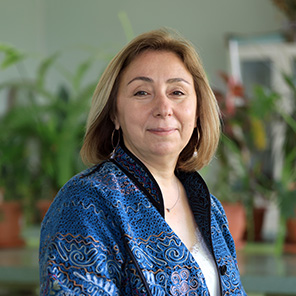
Head of the program
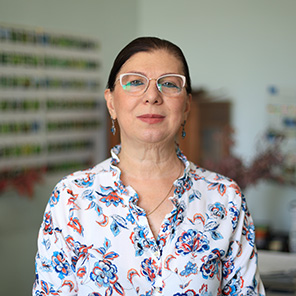
Coordinator
